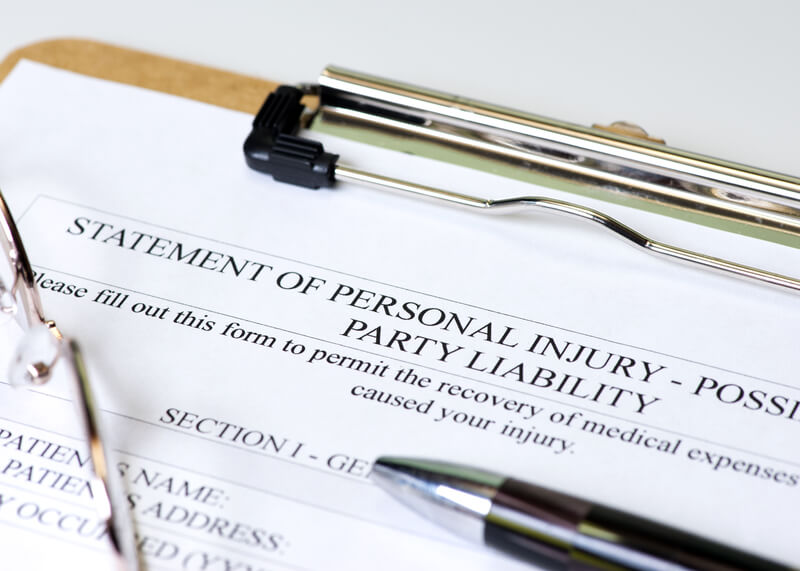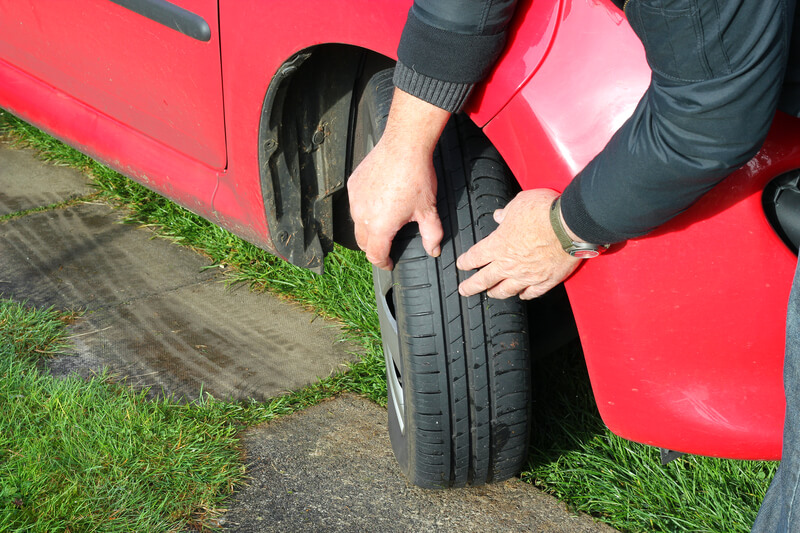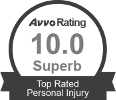For decades, veterans facing devastating diseases like cancer, Parkinson’s or COPD, had to prove their condition was tied to their service in order to access full VA benefits.
The Promise to Address Comprehensive Toxics (PACT) Act of 2022 changed that for some, ensuring veterans affected by Agent Orange, nuclear radiation, burn pits and other chemical agents didn’t have to jump through hoops to obtain the care they needed. Instead, the VA would presume certain conditions were a direct result of exposure during service.
The PACT Act also included a provision—the Camp Lejeune Justice Act—allowing affected veterans to not only access VA care but also file a Camp Lejeune claim. If you’re a victim of the Camp Lejeune water contamination, what are your options, and what risks do you need to be aware of?
What does the Camp Lejeune lawsuit cover?
The Camp Lejeune lawsuit is unique in that the federal government has already accepted responsibility for the contamination that happened at Camp Lejeune in North Carolina. In order to qualify for VA disability compensation, you need to have served at least 30 days at one of the following locations between Aug. 1, 1953 and Dec. 31, 1987:
- Marine Corps Base Camp Lejeune
- Marine Corps Air Station (MCAS) New River, North Carolina
You also need to have a diagnosis of at least one of the following presumed conditions:
- Adult leukemia
- Aplastic anemia and other myelodysplastic syndromes
- Bladder cancer
- Kidney cancer
- Liver cancer
- Multiple myeloma
- Non-Hodgkin’s lymphoma
- Parkinson’s disease
Anyone dishonorably discharged is not included.
What are presumed conditions?
Most VA disability claims first require a VA disability rating. It can be time-consuming, expensive, stressful and sometimes impossible to connect a health condition with service, however. With Camp Lejeune, the government eliminates the requirement of connecting a condition with service. The presumed conditions listed above are strongly associated with exposure to the water toxins once present at Camp Lejeune. It’s assumed that the two are linked if the veteran was present during affected dates.
Veterans like you, can also qualify for VA healthcare if they served at Camp Lejeune between the affected dates and they’ve been diagnosed with one of the following:
- Bladder cancer
- Breast cancer
- Esophageal cancer
- Female infertility
- Hepatic steatosis
- Kidney cancer
- Leukemia
- Lung cancer
- Miscarriage
- Multiple myeloma
- Myelodysplastic syndromes
- Neurobehavioral effects
- Non-Hodgkin’s lymphoma
- Renal toxicity
- Scleroderma
Family members qualify for healthcare reimbursement if they were a dependent of a service member who meets the service requirements, they lived at Camp Lejeune or MCAS New River, N.C., for at least 30 days between the affected dates, and they’ve been diagnosed with certain conditions. This includes people whose mothers were pregnant with them while living at Camp Lejeune.
What does the Camp Lejeune lawsuit cover?
In addition to VA disability benefits, VA healthcare and healthcare reimbursement, affected veterans, civilians and their families are able to file Camp Lejeune claims with the Department of the Navy (DON).
Up to 1 million people were possibly exposed to water contamination at Camp Lejeune, according to the Agency for Toxic Substances and Disease Registry (ATSDR), so Camp Lejeune lawsuits won’t proceed like typical personal injury cases.
To streamline the process, claimant’s attorneys identify bellwether cases—ones that are representative of many others. Taking the bellwether cases to trial helps the plaintiffs’ attorneys and the defendant (the U.S. government) get a sense of settlement values for different conditions, for example, kidney cancer or Parkinson’s disease. Because the federal government has already accepted responsibility for what happened at Camp Lejeune, the case will come down to determining settlement values—something that’s not easy to do when it involves a life-changing illness or the loss of life.
It’s important to remember that:
- The DON does not yet have an expected processing time for claims, and nearly 100,000 have already been filed.
- You have until August 2024 to file.
- Settlement amounts are still unknown, so promises of a specific monetary award are red flags for scams and predatory practices.
While there are many unknowns regarding the timeline for the Camp Lejeune claims process, choosing to file a claim won’t affect any existing VA healthcare benefits or disability payments. If you’re awarded a Camp Lejeune settlement down the road, your VA compensation or coverage won’t change. (Though your VA benefits may affect the extent of your relief.)
History of Camp Lejeune
The scale of the Camp Lejeune contamination can be hard to fathom. That’s because, for decades, toxic chemicals were present in much of the base’s drinking water at incredibly high concentrations. Marines who spent only a few months at the base faced cancer diagnoses years later. Military spouses who lost pregnancies or delivered babies with health complications weren’t aware of the link to poor water quality until long after.
Camp Lejeune opened in the 1940s as an amphibious training facility on the North Carolina coast. It became a key training location for generations of Marines deployed to the Pacific, Korea, Vietnam, the Persian Gulf, Iraq and Afghanistan, as well as the center of a large community of family members, civilian support staff and service providers.
Unfortunately, within its first decade of operations, contaminants started seeping into the base’s drinking water from industrial spills, waste disposal sites, leaking underground tanks and an off-base dry cleaner.
In 1982, the Marine Corps detected VOCs in the drinking water from two of the base’s eight water treatment plants. According to the ATSDR, PCEs from the dry cleaner contaminated the Tarawa Terrace water treatment plant, while TCE, PCE and benzene contaminated water from the Hadnot Point treatment plant.
According to the National Academies, the Tarawa Terrace and Hadnot Point plants served enlisted family housing, barracks, administrative offices, schools and recreational areas. The Hadnot Point plant even served the base’s hospital.
Exposures continued after testing revealed off-the-charts levels of contamination. In 1989, the EPA listed Camp Lejeune as a Superfund site, beginning cleanup in the early 1990s. Since then, there’s been a monumental coordinated effort between the EPA, the Navy and the North Carolina Department of Environmental Quality to remediate the base. The process is still underway, along with soil and groundwater monitoring.
While cleanup started in the ‘90s, many veterans didn’t learn of their exposure until years later when the Navy was forced to notify people who may have been exposed. The PACT Act removed the barrier of North Carolina’s statute of limitations, opening up an avenue for care and compensation for those harmed.
Camp Lejeune scams and phishing risks
According to the Better Business Bureau, law firms and agencies have spent more than $40 million advertising Camp Lejeune claims and potential settlements. With that level of saturation, it’s no surprise that the TV ads, social media posts, radio promos and sponsored sites would also catch the attention of scammers.
Scammers will target veterans and their families, promising an easy settlement or offering to get the process started.
Clicking a link might download malware or lead to a prompt for personal identification. Phone calls might ask for a fee to file paperwork and keep asking until the target catches on.
An attorney will never make unsolicited contact with you asking to represent your claim. The government will also not contact you to ask for your personal or financial information in relation to a Camp Lejeune claim. Attorneys representing Camp Lejeune tort claims work on a contingency basis, just as a personal injury attorney would, meaning you don’t pay them upfront fees.
If you decide to pursue a Camp Lejeune claim, you’ll want to choose an attorney who is an expert in mass tort cases involving toxic exposures and who will be upfront with you about the timeline for compensation. While the federal government has admitted fault, there are a lot of unknowns in the Camp Lejeune case. It’s still hard to predict how settlements will play out and when victims will receive relief.
What is the deadline for filing a Camp Lejeune claim?
Affected Marines, families and civilians have until August 2024 to file a Camp Lejeune claim. At Litner + Deganian, we know how much trust our clients place in us. That’s why we work with attorneys we trust on mass tort cases like this one, referring valued clients to firms specializing in mass tort lawsuits and toxic exposures. Our goal is to make sure people who have been hurt by someone else’s negligence have expert representation and access to the information they need.
Connect with a Camp Lejeune water contamination attorney
If you believe you’re a victim of the Camp Lejeune water contamination, contact us today, selecting “mass tort” under the prompt asking what kind of case we can help you with.












